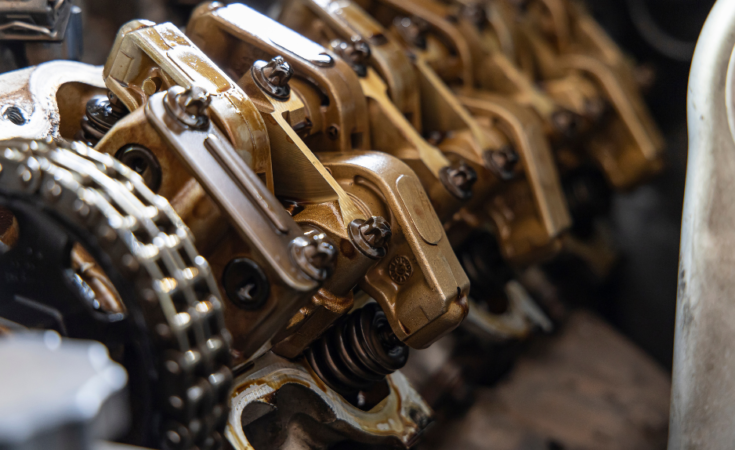If you can hear a ticking sound coming from the engine, have you ever wondered that it could be the lifter making the noise? Not only is this sound incredibly annoying, but it can distract you from the road or mask other sounds and issues the engine is having. You’ll want to get your lifter tick sorted as soon as possible, but how do you go about doing that? And how do you quiet noisy lifters?
Below we have compiled a guide all about lifters, including what they are, why yours might be making a noise and what you can do about it. So, if you’re ready to get to the bottom of this annoying sound and learn how to fix noisy lifters, keep reading on.
What Is A Lifter?
A hydraulic valve lifter, also known simply as a lifter, is a tiny cylinder that is connected to one end of the push arm or rocker arm, where it meets the valve. It uses oil pressure to adjust a plunger which in turn takes the clearance of the valve train.
A lifter is designed to quieten the noise from the engine while improving the performance and lifespan. These lifters are usually found in mass-produced vehicles where less maintenance is required, while solid or mechanical lifters are used in racing cars.
Why Is Lifter Noise A Problem?
So, you’re probably reading this article and wondering why, if an engine lifter is supposed to make the car quieter, why is it making noise itself?
Well, just like any other part of your car, the lifter is subject to wear and tear. This is particularly true of older cars or cars that have a high mileage. Noisy lifters are also often seen in cars that are not serviced regularly.
A lifter that is faulty or broken will make a ticking or tapping noise and may only occur when you start your car, or may continue as the car is running.
The length of time your lifter is making noise and the type of noise it is making will determine whether it is a problem or not. If your car is old and the lifter makes a ticking noise when you start the car but it quickly stops, you shouldn’t worry too much. This may be the sign of some dirt or mud that has accumulated in the engine, so you might want to get it cleaned.
However, if the lifter continues to make noise while the car is running and you are driving, it may be a sign of a more serious issue and you’ll want to get to the bottom of it. Not only can this sound be really annoying, but it could also show there is a real problem with your car. Not getting it fixed could lead to problems with your engine and cause damage to your car in the long run.
Let’s take a look at some of the common causes of a noisy lifter below.
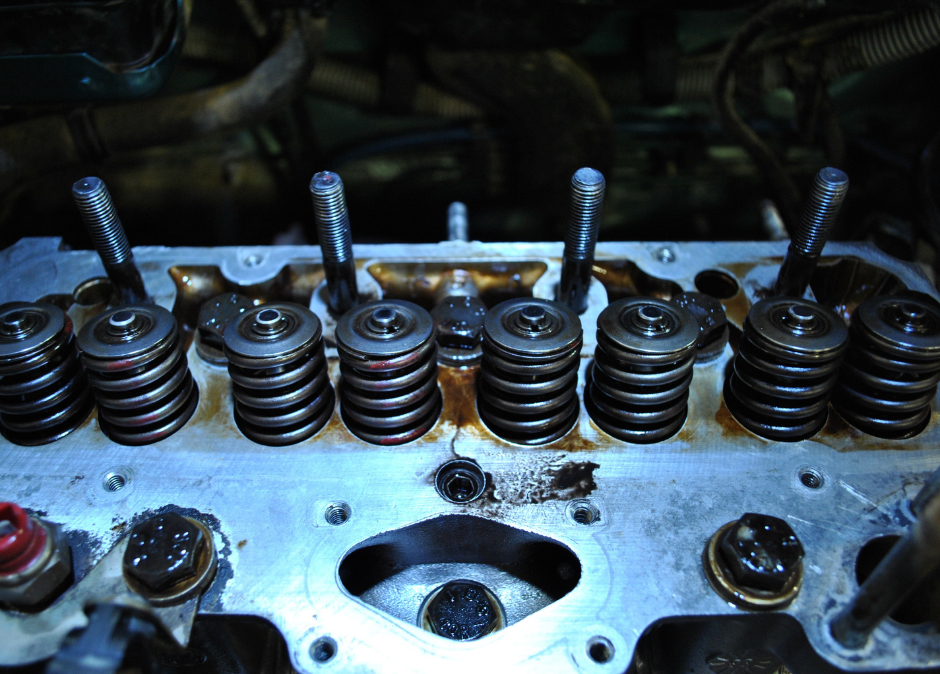
Common Causes Of Lifter Noise
While your lifter should prevent the car engine from making noise, sometimes it can be very noisy! Here are some of the most common reasons that your lifter is making a loud or annoying sound.
Old Car
Cars don’t live forever, and the older your car gets and the older the engine gets, the more likely you are to hear lifter ticking.
Broken Lifter
A defective, broken or faulty lifter can cause noise, and will need to be replaced.
Poor Maintenance
Cars need to be serviced regularly to help keep them in tip-top condition. Cars that have not been maintained properly are more prone to lifter tick, because there may be underlying issue with the engine that have not been fixed. Lifters that have not undergone oil and filter changes may also wear away more easily.
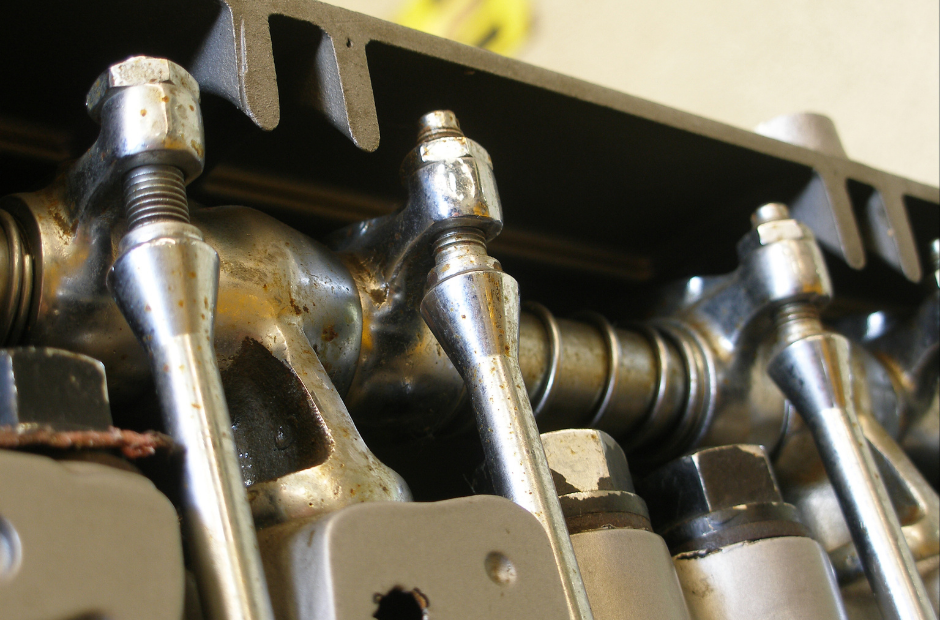
Bent Pushrod
A bent pushrod is caused by pushing too much on the accelerator. It can happen when the car is treated like a race car! It will slowly bend over time until the lifter begins to make noise.
Dirty Oil
If you’ve got old oil, the oil is too dirty or the oil level is too low, then the lifter valve will not have enough lubrication. This can cause it to collapse, which in turn will result in the lifter making noise.
Oil Filter
An oil filter needs to be changed regularly and, if it hasn’t been, it can get clogged and stop the oil flow. This will then reduce the oil pressure and cause lifter noise.
How To Detect A Noisy Lifter
There are many different parts of your car, some of which make noise and some of which don’t. So, how do you know whether it’s your lifter that is making noise or a different part of the vehicle?
One of the easiest and simple ways to work out whether your lifter is making the noise or not is to use the garden hose. Remove the valve covers and let the engine of your car run. Connect one end of the hose near the intake and exhaust valve, and place the other end of the hose so you can hear it clearly. This method will help you to isolate the sound and then you can move on to fixing the issue.
If you would prefer to detect whether the lifter is faulty while the engine is off, push down the rocker arms on the pushrod. If the rocker arms move too freely, it may indicate the filter is leaking.
Once you have determined that it is your lifter making noise, you can use some of our methods below to quieten it.
How To Quiet A Noisy Lifter
There are a few different ways we can go about quietening a noisy lifter. To do this, we may need some extra tools to help us. Take a look at the methods we recommend below and some of the equipment you might need.
Equipment Needed
-
Engine Oil
Your car needs oil to run. Oil is effectively the blood of the car. However, it must be the right consistency — not too thick or thin, otherwise it can cause damage. The right oil consistency is slightly thicker than water.
-
Oil Additive
An oil additive such as an oil stabilizer or engine flush can help to get rid of any dirt, debris and sludge that has accumulated in your engine. They can also help to increase oil life and reduce oil consumption.
-
Feeler Gauge
A feeler gauge can be used to adjust the lifter after changing the oil or adding an oil additive.
How To Fix/Quiet Noisy Lifters: Methods
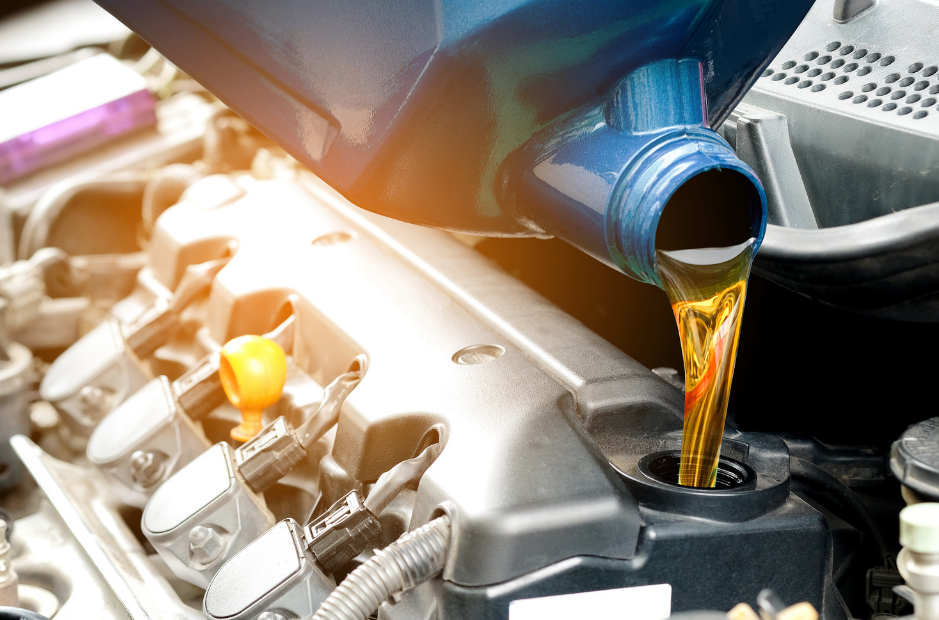
Change The Oil
If your car does not undergo maintenance regularly, this may be the cause of the noisy lifter. Engine oil should be replaced once to twice every year, but it is important you use the right type of oil.
If an oil is too thick, it can easily creep into the hydraulic lifter’s tiny hole opening. If it is too thin, it will not give the right amount of lubrication for the engine to run smoothly. The correct consistency of the oil for your engine is one that is just thicker than water.
You should start by checking your oil level. It should not be too low, but also not too high as this could result in the oil pump sucking in air. To be sure, you should completely drain your oil and let the engine sit idle for 15 minutes. You might want to use an engine flush at this point to make sure any dirt or sludge is removed, too. Once the oil filter is empty, you can refill it with new oil, and this should prevent the lifter from making noise.
You should always follow the manufacturer’s instruction manual when changing the oil. If you do not have one, you may wish to take your car to a mechanic to have it professionally changed, so you can be sure it is done correctly.
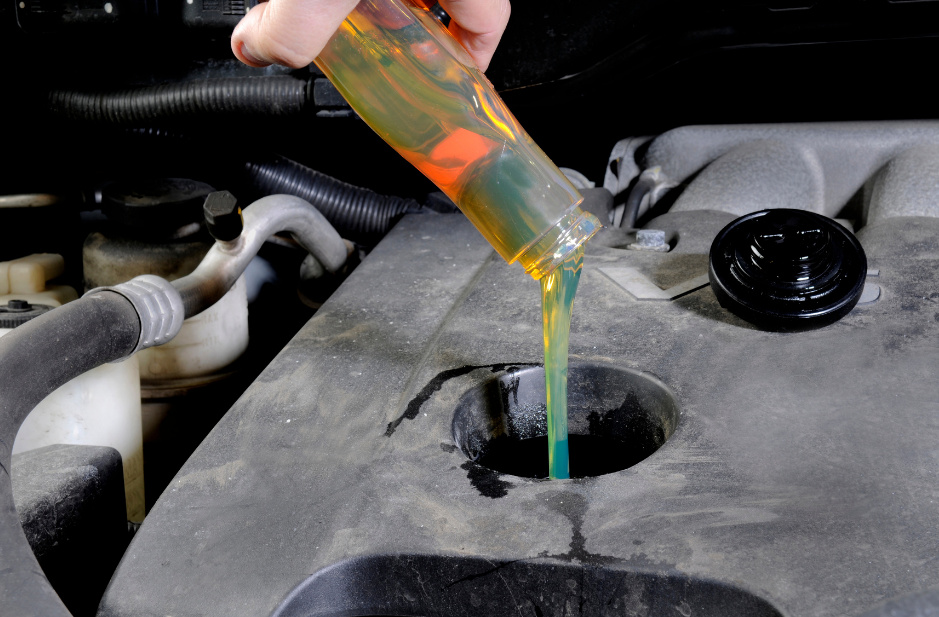
Use Oil Additives
Using an oil additive to help clean the lifter is another great way to stop it from making noise, particularly the tapping noise you may hear when the car first starts. An oil additive not only clean the lifters, but also the rockers and valves and will get rid of any dirt, sludge and other buildup.
You don’t need to drain the oil from the tank to use the oil additive — you can simply add it to the tank and then take the car for a drive for a few miles. Driving the car will help to mix the additive into the oil, cleaning the lifter and other parts, and hopefully stopping any ticking noise.
Oil additives are very inexpensive so this is a great way to solve your lifter noise issue without breaking the bank. You also don’t need to worry when adding the additive to the oil, because the viscosity of the additive is the same as the oil.
Adjust The Lifter
If an oil change and oil additives have not helped your lifter tick, you can try adjusting the lifter. Lifters are usually self adjusting, but the may get into the wrong position and start making noise.
To adjust the lifter, you will need to use a feeler gauge. This will be used to check the space between the rocker arm and valve stem, also known as the valve lash. The engine manual will tell you the proper valve lash size and, if what you are measuring with your feeler gauge is not what the manual states, you will need to adjust with the valve adjustment screw to get the correct gap.
Replace The Bent Push Rod
A bent push rod can be the result of having a little too much fun with your accelerator. Over time, they can become bent and then begin to make noise. They can also affect the car engine and damage other connected parts if they are not dealt with properly.
To check whether a push rod is bent or not, roll each of them on a flat surface. You can open push rods by yourself by unscrewing the push arm and lifting the push rods.
Once you have figured out which push rod is bent, you can replace it. The annoying thing is that this a very tricky procedure, and one we recommend you let your local mechanic deal with. While replacing the parts could cost as little as $20, the labor can be much more expensive, especially as replacing push rods can take up to 6 hours.
How To Fix Noisy Lifters: FAQs
-
When should I see a mechanic?
If you have tried our solutions to a noisy lifter above and none have fixed or stopped the sound, then it is time to see a mechanic. Similarly, if you feel out of your depth at any point or are unsure how to go about fixing the lifter, don’t hesitate to visit a professional. They will be able to help diagnose the problem and get it sorted for you.
-
Do I need to buy a new car if I have a noisy lifter?
No! Just because a part of your car is broken, it does not mean it is time for a new car. If your car is very old and the lifter noise is due to this, it may be time you think about getting a new car. However, this is more due to the fact that an older car will likely develop more problems than just a noisy lifter, and you may end up saving a lot of time and money by upgrading your vehicle instead of spending money fixing your old one.
If your car is not old or in otherwise good health, you can simply just fix the lifter, or replace with a new lifter, and it should be as good as new. Try our methods above or take your car to a mechanic.
-
How do I know if I have a broken lifter?
It can be difficult to tell whether your lifter is broken or not, but if you are hearing sound coming from the area, it should be a good indication that something isn’t right. Don’t ignore the noise when you hear it, because it could be that it just needs some new oil or another quick fix. Leaving the lifter could result in it becoming damaged or damaging other parts of the car, which could end up costing you a lot more money.
For more on quiet cards, check out our posts on acoustic windshields, quiet tires and sound deadening materials for cars!
How To Fix Noisy Lifters – Summary
A noisy lifter can really interfere with driving, and could potentially be the sign of more serious issues with your car. We hope this article has helped you in finding a solution the noise caused by your lifter and assisted you in diagnosing the cause, so you can get the problem fixed and get back out on the road. Make sure to never ignore unusual noises coming from your car and, if you are ever unsure, take it to a mechanic to get it checked out.

